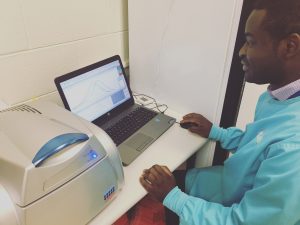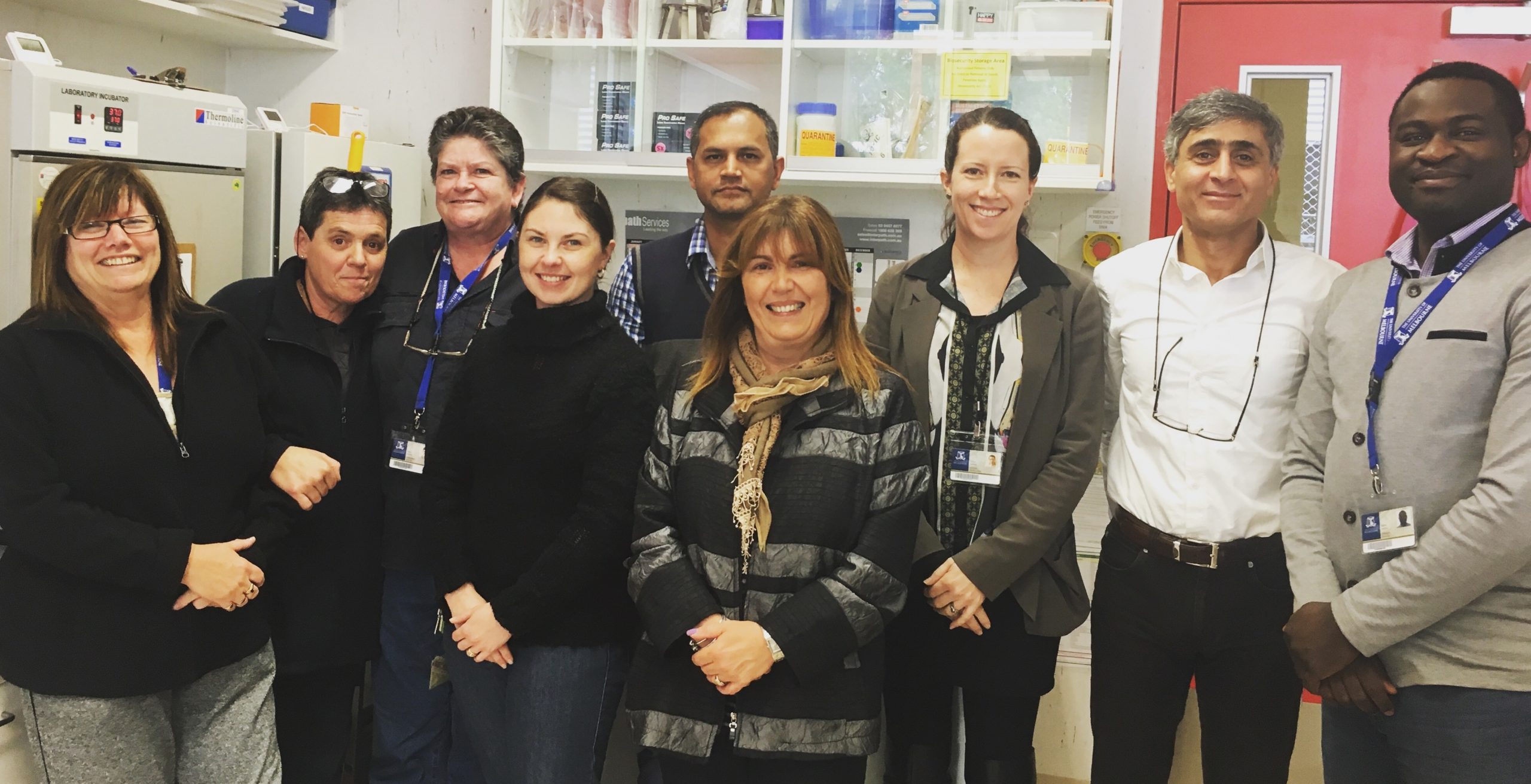Rapid tests for poultry disease diagnosis and monitoring
Dr Penelope Steer-Cope
The Asia-Pacific Centre for Animal Health was established in 1999, and operates within the Melbourne Veterinary School, in the Faculty of Veterinary and Agricultural Sciences at the University of Melbourne. The APCAH diagnostic laboratories at Werribee provide a range of serological and molecular tests to the Australian poultry industry, as well as exceptional expertise and facilities to support research in the epidemiology and pathogenesis of infectious diseases of poultry.
The APCAH facilities hold multiple accreditations and operate under the Australian Standard ISO/IEC 17025, with the quality system and laboratory operations managed by Dr Penelope Steer-Cope and the animal facilities managed by Dr Pollob Shil and his team (Ms June Daly, Ms Lorraine Barnwell and Ms Angela Chircop).

The molecular laboratory offers PCR detection of over 22 avian pathogens, as well as strain identification in several cases, with new tests being continually developed in response to issues arising in industry. Furthermore, our molecular biology technicians, Ms Rebecca Agnew and Dr Martins Oloagun, perform sequence and phylogenetic analyses to extend diagnoses to identify the origins of specific isolates. This information in turn can uncover more significant events, such as disease re-emergence and genetic recombination. The laboratory also has international recognition for its expertise in mycoplasma culture and detection techniques, and research and development of mycoplasma vaccines.
The serology laboratory offers numerous assays for screening poultry flocks for endemic pathogens, as well as monitoring the efficacy of vaccination programs. The senior virologist, Ms Denise O’Rourke, has a remarkable breadth of knowledge and skills in avian serology and virology, including virus isolation, which often provides the building blocks for subsequent research projects.
The diagnostic and research teams in APCAH provide a richly complementary and comprehensive environment, with field submissions from diagnostic testing informing an understanding of the emergence of disease issues in the industry, which in turn leads to development of research projects that provide training opportunities for younger investigators interested in the poultry industry. The in

vestigators in these research projects utilise diagnostic specimens, often collected and stored over several years, to examine disease epidemiology and pathogen virulence and genomics. In the process, new and novel diagnostic test methods are developed and adopted by our diagnostic laboratories as tests provided to the industry. An example of this is the emergence of new classes of ILTV, first identified through diagnostic testing using PCR-RFLP typing. Subsequent research revealed that the new isolates were the result of recombination between field and vaccine strains. This has since led to improved diagnostic tools for ILTV using HRM and sequencing, which are still under development.
The cohesive nature of the APCAH laboratories, together with our strong connection to industry, provide a unique platform from which to identify poultry disease issues and launch the research activities that result in the development of new solutions for the Australian poultry industry.
For details of diagnostic testing provided by APCAH please refer to our website


